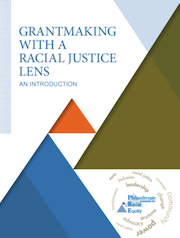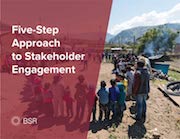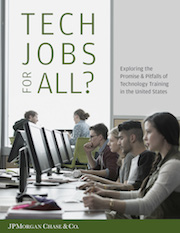Site Search
- resource provided by the Forum Network Knowledgebase.
Search Tip: Search with " " to find exact matches.
Johnson & Johnson extends our sympathy and support to the thousands of people affected by the devastating earthquakes in Turkey and Syria.
In the immediate aftermath of this disaster, we have been assisting the region by:
- Pledging $1 million for disaster relief efforts to support the following NGOs: International Medical Corps (IMC) and International Rescue Committee (IRC).
- Donating funds to Direct Relief for immediate support of the rescue efforts on the ground in Turkey.
- Donating thermal blankets and working to provide other items in urgent need, including hygiene products, surgical sutures, hemostats, wound closures, and other medical products.
- Establishing an employee giving campaign that is supported with matched gifts for global engagement.
- Supporting temporary accommodation, transportation and access to food and water to impacted employees and their immediate families.
Prudential Financial has awarded “microgrants” to 54 nonprofits and individuals throughout the city to help them continue their effort to address community issues and improve quality of life for people and families.
Prudential, headquartered in Newark, recently distributed $280,000 from a $500,000 Community Grants Program, launched in March. Prudential partnered with the Community Foundation of New Jersey to administer and distribute the microgrants.
“We know a strong city is built on strong neighborhoods and we understand that those closest to the challenges in our community are best positioned to solve them,” said Lata Reddy, senior vice president with Prudential Financial and chair of The Prudential Foundation.
As Jewish institutions across the U.S., from synagogues to Jewish Community Centers, tighten security measures as a response to rising antisemitism, the Tepper Foundation noticed that fears were particularly heightened among young families. In response, the grantmaking foundation announced on Monday that it will deploy $2.5 million in emergency grants through its Security Fund to underwrite the cost of security personnel in Jewish institutions where young children are in attendance.
“By speaking with our grantees, we discovered that many of them don’t have security on the premises when young children are present. This was creating a good deal of anxiety among parents,” Marian Stern, a consultant who serves as a portfolio manager at The Tepper Foundation, told eJewishPhilanthropy.
The Victoria Foundation in Newark, New Jersey, has announced grants totaling $12.8 million in 2024 as part of its centennial anniversary.
The grants support area nonprofits as part of the Thriving Neighborhoods Initiative, the foundation’s long-term commitment to building power and generational well-being, focusing on the neighborhoods of Fairmount Heights, Lower Broadway, and Upper Clinton Hill. In December, at a year-end gala to celebrate its anniversary, the foundation presented “surprise” Centennial Impact Awards to seven organizations totaling $2.5 million.
“These funds ensure that our grantees continue to provide quality programs and support to meet the needs of Newark families,” said Victoria Foundation executive officer Craig Drinkard. “We look forward to 2025 and our continued partnership in all the important work.”

In the 12 years since the original Grantmaking with a Racial Equity Lens guide was published the country’s political, economic, and cultural landscapes have undergone multiple, dramatic changes. Public engagement and organizing against racism has risen to historic levels and we've seen racial justice concepts take root in such mainstream contexts as Washington Post articles on White privilege and wider use of the phrase “systemic racism.” And funders have worked hard to keep up. In response to these conditions, PRE has produced an updated guide. The daily practice of using a racial equity lens in social change as well as in grantmaking has established a baseline understanding of structural racism and has led to new insights, definitions, and nuances.

In 2019, the landscape of digital communication, international agreements and investor expectations makes stakeholder engagement more important than ever: Digital and social media amplify voices of the public, including civil society organizations; international agreements such as the UN Guiding Principles and Sustainable Development Goals have been established and globally accepted; and investors are significantly more focused on company approaches to environmental, social, and governance (ESG) issues, which in turn necessitate consideration of all stakeholders, not just shareholders.
First published in 2011, this updated guide from BSR is a response to developments over the last seven years, all of which necessitate a far clearer focus on stakeholder trust by corporations. This report aims to provide a comprehensive toolkit that incorporates the latest thinking while maintaining the clarity and practicality of their five-step approach.
The Funders Collaborative was an innovative partnership supported by 14 local and national foundations. The collaborative supplemented the programs and grantmaking of its member foundations by working with community organizations, the business sector and public agencies to encourage collaboration, planning and investment “beyond the rail.”
The Green Line opened in June 2014, and the Funders Collaborative concluded its work two years later in June 2016 as planned.
The Funders Collaborative was founded with a belief in light rail’s potential for benefiting the people and places closest to the line. The collaborative envisioned stable, thriving neighborhoods throughout the corridor that reflect community identities and link all people to regional opportunities and local amenities.
The Funders Collaborative concluded its work in June 2016 as planned. The final report and archives document the accomplishments and learnings of this innovative partnership have been archieved for learning purposes.

In the past few years, training programs promising on-ramps to high-paying tech jobs have sprung up across the country, drawing attention from the media, government leaders, and the general public. The rapid growth of these new models for tech training – often designed to fill the projected growth in information and communication technology (ICT) jobs – raises questions about how best to classify and understand these programs and their role and value in workforce development more generally.
This report examines the reasons for the tech training hype and proposes a taxonomy of training programs, cataloging best practices from each program type. The report also identifies challenges that organizations, employers, and the government will need to address to ensure these expanding programs accurately meet market demand and look to the future of tech training more generally.
It’s Jan. 1 and I am thinking about 2015, as many of us are. Thinking about plans, what must be accomplished, what new projects and ideas we’ll explore, and so on. But I realize the building blocks for our 2015 plans are embedded in 2014, and even 2013, and 2012 and before.
As Deputy Director at the Council of New Jersey Grantmakers, part of my role is building our public policy work on behalf of New Jersey’s philanthropic sector and our members.
I believe the best definition of public policy that engages all of us — citizens, the community, nonprofits, for-profits, and philanthropy is: Government programs and decisions that impact the economy, people and our society. Such a basic, thoughtful, and powerful definition that speaks to everyone at our core. I would even say the definition is elegant in its simplicity.
Key to our work is the profound realization of the power of partnerships — not that we didn’t already know that. We’ve been fortunate and proud over the last few years to have developed a strategic and planned relationship with the Center for Non-Profits.
In 2014, this partnership added another milestone. The Center for Non-Profits and Council of New Jersey Grantmakers on Nov. 9 co-presented a two-hour briefing for New Jersey Legislative staff on “Understanding New Jersey’s Non-Profit Community: Role, Impact, Myths & Facts.” The session was a great success. Legislative staff from some key sections and committees that need to understand the work of the nonprofit and the philanthropic sectors attended the briefing. Attendees were quite engaged and asked a number of insightful questions.
We’re confident everyone came away with a heightened understanding of the many nuances of the nonprofit, charitable and philanthropic communities. We also encouraged each attendee to reach out to our organizations when they have questions about the sectors, as well as for information and assistance. We’re scheduled to provide another briefing to the Office of Legislative Services in 2015.
Another initiative of critical importance to the nonprofit and philanthropic sectors that launched in 2014 is the Stand for Your Mission campaign. A joint partnership of the National Council of Nonprofits, the Forum of Regional Associations of Grantmakers, BoardSource, Alliance for Justice, the Campion Foundation, and the John S. and James L. Knight Foundation, the campaign “seeks to unleash the full potential of the nonprofit sector to create positive impact by engaging board leaders more directly in the advocacy work of their organizations.”
This means encouraging board members and social sector decision-makers to actively represent their organization’s mission and values. This is basic advocacy and honors the elegant definition of public policy noted above.
For these reasons (and frankly more) 2015 looms with abundant promise. Can’t wait to see what comes next. How will you and your organization engage in public policy to further the missions so dear to your work and to make a positive impact on our communities?
Theresa Jacks, Deputy Director, Council of New Jersey Grantmakers.
On this webinar, funders were briefed on how the CARES Act can help nonprofit organizations during COVID-19, heard an update on testing and public health needs from the city, and were informed on the response and greatest needs in Newark hospitals.
Speakers:
Brandon McKoy, President, New Jersey Policy Perspective
Dr. Shereef Elnahol, President and CEO, University Hospital
Dr. Mark Wade, Director, City of Newark Department of Health and Community Wellness
Webinar Video
The United Way of Greater Newark has awarded more than $800,000 in grant funding to 15 community-based organizations in Newark to create and launch neighborhood-based mobile vaccination clinics as well as neighborhood-based outreach and public information campaigns.
This effort is part of the Newark Equitable Vaccine Initiative, which is led by the United Way of Greater Newark and is focused on building a fully community-powered model for increasing access and equity in vaccine distribution in Black and brown communities. It is part of a national pilot program created by the Rockefeller Foundation.
Despite the rapidly increasing number of vaccinations available to eligible residents in New Jersey and nationally, the vaccination rates in Black and brown communities remain disproportionately low. Newark has one of the lowest vaccination rates in the state among communities with more than 10,000 residents.
Panasonic today announced the Panasonic Foundation, in partnership with the Community Foundation of New Jersey (CFNJ), has allocated four $25,000 Challenge Grants to nonprofit organizations dedicated to advancing STEAM education in Newark, NJ. The select recipients of this funding are After School All Stars, the Trust for Public Land, Students 2 Science, and Liberty Science Center.
With funding from the Challenge Grants, the select nonprofit partners will continue to advance and develop accessible STEAM education programs with the goal of improving education and workforce outcomes for Newark students.
“We are thrilled to award Challenge Grants to nonprofits dedicated to inspiring and preparing the next generation of leaders. These grants underscore our commitment to fostering accessible STEAM education, propelling Newark students toward brighter educational and workforce opportunities,” said Alejandra Ceja, Vice President of Social Impact and Inclusion at Panasonic.
The William Penn Foundation is pleased to announce it has recently awarded nine Watershed Protection grants totaling more than $3 million. Our Watershed Protection Program supports efforts to secure healthy rivers and streams in the Delaware River watershed.
The William Penn Foundation is pleased to announce it has recently awarded 24 Great Learning grants totaling more than $4.2 million. Our Great Learning Program grantmaking focuses on increasing the number of children from Philadelphia’s low-income communities who experience academic success.
The William Penn Foundation is pleased to announce it has recently awarded 15 Creative Communities grants, totaling over $6.6 million in support of programs and initiatives that ensure people across Greater Philadelphia benefit from inclusive, diverse, and high-quality arts, culture, and public space experiences.
The F.M. Kirby Foundation in Morristown, New Jersey, has announced that it awarded 266 grants totaling more than $16.8 million in 2024, an increase of over 9 percent year-over-year.
Grants were awarded to organizations working in the areas of education ($4.4 million), human services ($4 million), health ($2.7 million), arts, culture, and humanities ($2.4 million), environment and animals ($1.7 million), public affairs ($1.2 million), and religion ($127,500). More than half the grants (56 percent) were provided as general operating support, and 108 grants (40.6 percent) were awarded to organizations that have been Kirby’s funding partners for more than 25 years. Grants awarded in New Jersey and North Carolina—the foundation’s primary geographic areas of interest—accounted for $10 million in support, nearly 60 percent of all funding
The William Penn Foundation has recently awarded 15 Great Learning grants totaling more than $2.8 million. Their Great Learning program grantmaking focuses on increasing the number of children from Philadelphia’s low-income communities who experience academic success.They have also recently awarded 10 Watershed Protection grants totaling nearly $6 million supporting efforts to secure healthy rivers and streams in the Delaware River watershed, and awarded 26 Creative Communities grants, totaling over $9.7 million in support of programs and initiatives that ensure people across Greater Philadelphia benefit from inclusive, diverse, and high-quality arts, culture, and public space experiences.
Recent Supreme Court affirmative action rulings and sweeping government executive actions are targeting diversity, equity, inclusion, belonging and access initiatives in the public and private sectors. Please join us for this web briefing, the first in a series, which will cover the latest legal developments and offer suggestions for nonprofits to chart a course in this landscape, remaining true to their missions and the people and communities they serve, while mitigating risk to their organization.
Presenter: Lloyd Freeman, Esq., Chief Diversity & Inclusion Officer, Buchanan Ingersoll
Cost: Free for all funders
Note: this session will not be recorded.
This program is co-presented by the Council of New Grantmakers, New Jersey Center for Nonprofits, Gathering Ground, Grunin Foundation, Pro Bono Partnership, Nonprofit Professionals of Color Collective, and Support Center.
